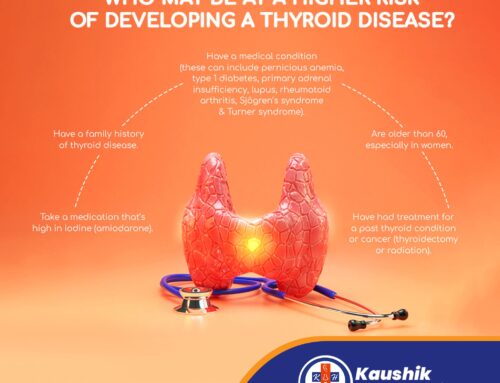Experiencing hearing loss in one ear can be alarming and should not be overlooked. At Kaushik ENT Hospital in Udaipur, we emphasize the importance of addressing unilateral hearing loss promptly to protect your ear health and overall well-being.
Common Causes of Hearing Loss in One Ear
Several factors can contribute to hearing loss in one ear, including:
- Ear Infections: Conditions like middle ear infections (otitis media) can cause temporary or permanent hearing loss.
- Eustachian Tube Dysfunction: Blockage in the Eustachian tubes can create pressure imbalances, affecting hearing.
- Meniere’s Disease: This inner ear disorder may cause fluctuating hearing loss, tinnitus, and vertigo.
- Acoustic Neuroma: A benign tumor on the auditory nerve can lead to hearing loss and balance issues.
- Trauma: Injuries to the ear or head can impact hearing function and require immediate evaluation.
Why You Shouldn’t Ignore It
Hearing loss in one ear can indicate serious underlying conditions that require medical attention. Ignoring these symptoms can lead to further complications, including increased risk of falls, social isolation, and impaired communication.
What to Do Next
If you’re experiencing hearing loss in one ear, it’s essential to consult a specialist. At Kaushik ENT Hospital, our expert team, led by Dr. Shiv Shanker Kaushik, provides comprehensive evaluations, including hearing tests and imaging studies, to determine the cause of your hearing loss.
Treatment Options for Hearing Loss in One Ear
At Kaushik ENT Hospital, we offer a range of treatment options tailored to address hearing loss in one ear based on its underlying cause. Here are some common treatment methods:
1. Medical Treatment
- Medications: For infections or inflammation, antibiotics or steroids may be prescribed to alleviate symptoms and restore hearing.
- Ear Drops: Prescription drops can help treat infections or manage symptoms of ear conditions.
2. Hearing Aids: If hearing loss is permanent, hearing aids may be recommended to amplify sound and improve hearing ability in the affected ear. These devices are customized to fit your specific hearing needs.
3. Surgical Interventions
- Tympanoplasty: Surgical repair of the eardrum or ear canal to improve hearing and address structural issues.
- Mastoidectomy: Removal of infected tissue in the mastoid bone to prevent further complications.
- Acoustic Neuroma Surgery: If a tumor is causing hearing loss, surgical removal may be necessary.
4. Assistive Listening Devices: Devices such as FM systems or amplified phones can enhance hearing in specific situations, helping individuals communicate more effectively.
5. Therapy and Counseling
- Auditory Rehabilitation: Programs designed to help individuals adjust to hearing loss and develop coping strategies.
- Counseling: Support for emotional and psychological aspects of dealing with hearing impairment, enhancing quality of life.
6. Lifestyle Modifications: Recommendations for protecting your hearing, such as avoiding loud noises and using ear protection, can help prevent further damage.
Symptoms of Hearing Loss in One Ear
Hearing loss in one ear can manifest through various symptoms. Recognizing these signs early is crucial for timely intervention and treatment. Here are common symptoms to watch for:
- Difficulty Hearing Sounds: You may struggle to hear sounds from the affected ear, especially in noisy environments, or when someone speaks from that side.
- Muffled Sounds: Sounds may seem muffled or distorted in the affected ear, making it challenging to distinguish speech from background noise.
- Tinnitus: A ringing, buzzing, or hissing noise in the affected ear, known as tinnitus, is often associated with hearing loss and can be distressing.
- Trouble Locating Sounds: You might find it difficult to determine the direction of sounds, which can affect spatial awareness and safety.
- Sensitivity to Certain Sounds: Increased sensitivity to certain frequencies or volumes can occur, making loud noises uncomfortable or painful.
- Balance Issues: Since the ear plays a vital role in maintaining balance, hearing loss in one ear may lead to dizziness or balance problems.
- Social Withdrawal: Struggling to hear can result in frustration, leading to social withdrawal or avoidance of conversations and social situations.
- Fatigue: Constantly straining to hear can lead to mental fatigue, making everyday interactions more exhausting.
Risk Factors for Hearing Loss in One Ear
Hearing loss in one ear can be caused by a variety of factors. Understanding these risk factors can help you take proactive measures to protect your hearing health. Here are some key risk factors associated with unilateral hearing loss:
- Age: As people age, they may experience gradual hearing loss. Presbycusis, age-related hearing loss, can affect one ear more than the other.
- Noise Exposure: Prolonged exposure to loud noises, whether occupational (such as construction work) or recreational (like concerts), can damage the auditory system and lead to hearing loss in one ear.
- Ear Infections: Recurrent or untreated ear infections can lead to scarring or damage to the structures of the ear, resulting in hearing loss.
- Medical Conditions: Certain health issues, such as Meniere’s disease, diabetes, and autoimmune disorders, can increase the risk of hearing loss in one ear.
- Family History: A family history of hearing loss can indicate a genetic predisposition, making individuals more susceptible to developing hearing issues.
- Trauma or Injury: Injuries to the head or ear can lead to unilateral hearing loss, often due to damage to the auditory system.
- Ototoxic Medications: Certain medications, such as some antibiotics and chemotherapy drugs, can have harmful effects on hearing, potentially affecting one ear more than the other.
- Smoking and Alcohol Use: Both smoking and excessive alcohol consumption can negatively impact blood flow to the ears, potentially contributing to hearing loss.
Why Choose Kaushik ENT Hospital in Udaipur?
Choosing the right healthcare provider for your ENT needs is crucial for receiving quality care. Here are several reasons why Kaushik ENT Hospital stands out as a top choice:
- Experienced Specialists: Our team is led by Dr. Shiv Shanker Kaushik, a highly qualified ENT specialist with over 11 years of experience. His expertise ensures that you receive the best possible care for your ear, nose, and throat conditions.
- Comprehensive Services: We offer a wide range of services, including diagnosis and treatment for hearing loss, ear infections, sinus issues, allergies, and more. Our hospital is equipped to handle both common and complex ENT conditions.
- State-of-the-Art Technology: Kaushik ENT Hospital is equipped with advanced diagnostic tools and treatment technologies, ensuring accurate assessments and effective interventions for various ENT disorders.
- Personalized Care: We believe in a patient-centered approach, tailoring treatments to meet the unique needs of each individual. Our compassionate staff is dedicated to providing support throughout your healthcare journey.
- Focus on Patient Education: We prioritize educating our patients about their conditions and treatment options. Our goal is to empower you with knowledge, helping you make informed decisions about your health.
- Convenient Location: Located in Udaipur, our hospital is easily accessible, making it convenient for patients in the area to receive high-quality ENT care without long travel times.
- Positive Patient Feedback: We have received numerous testimonials from satisfied patients who commend our professional service, effective treatments, and friendly atmosphere.







Leave A Comment